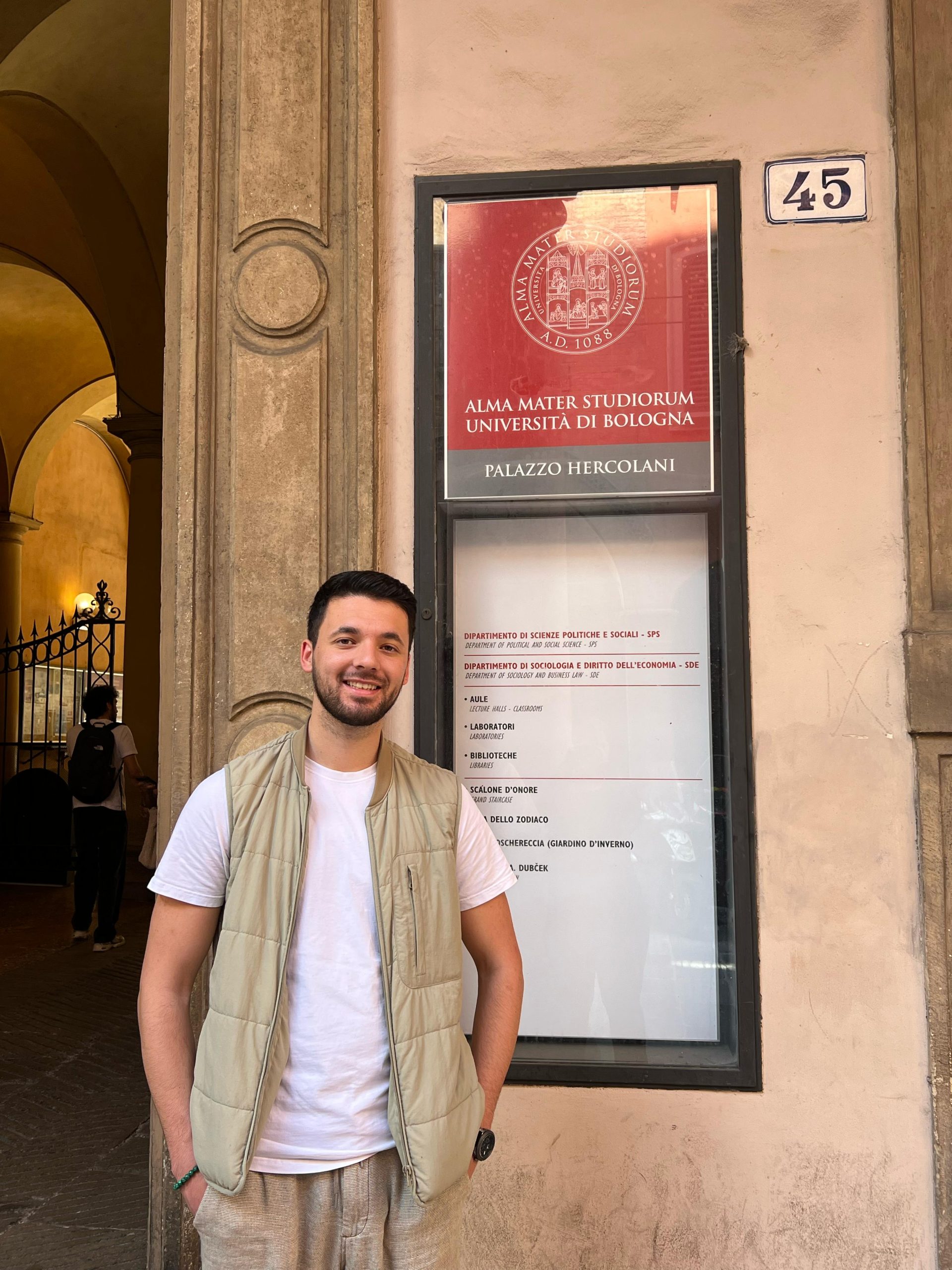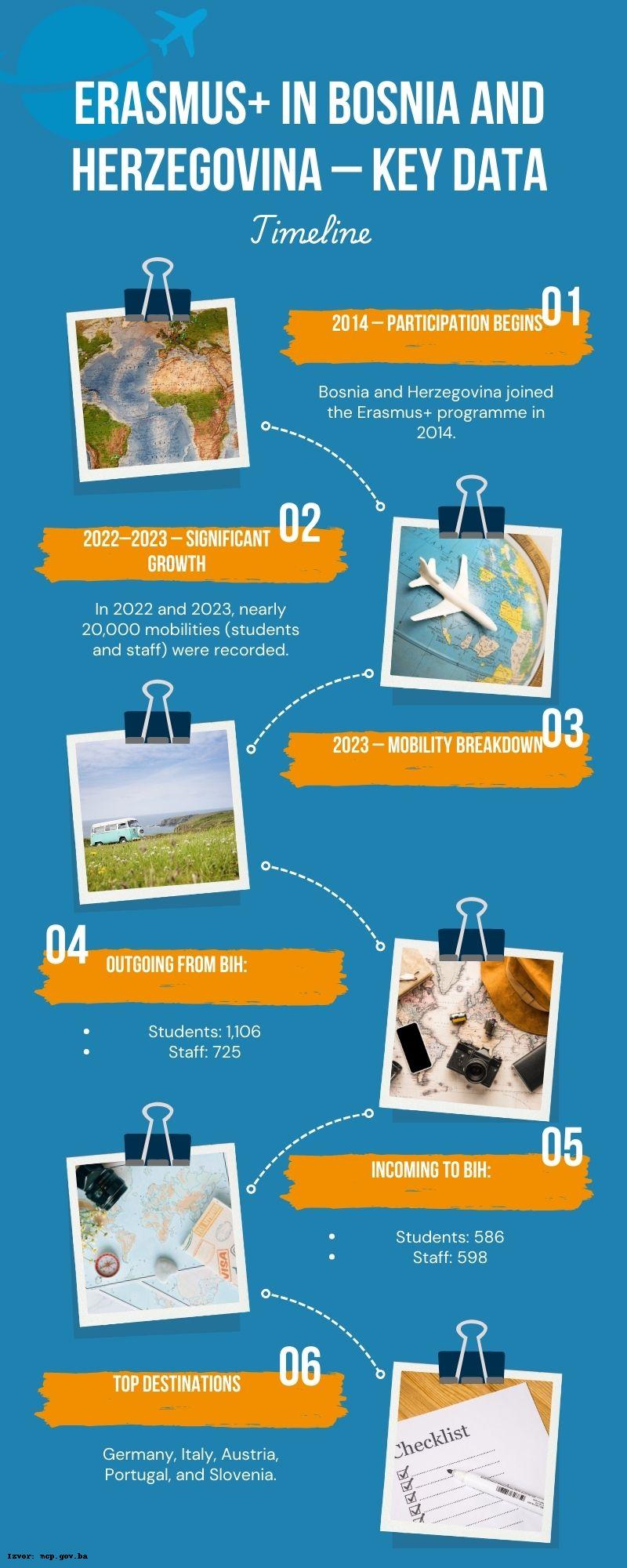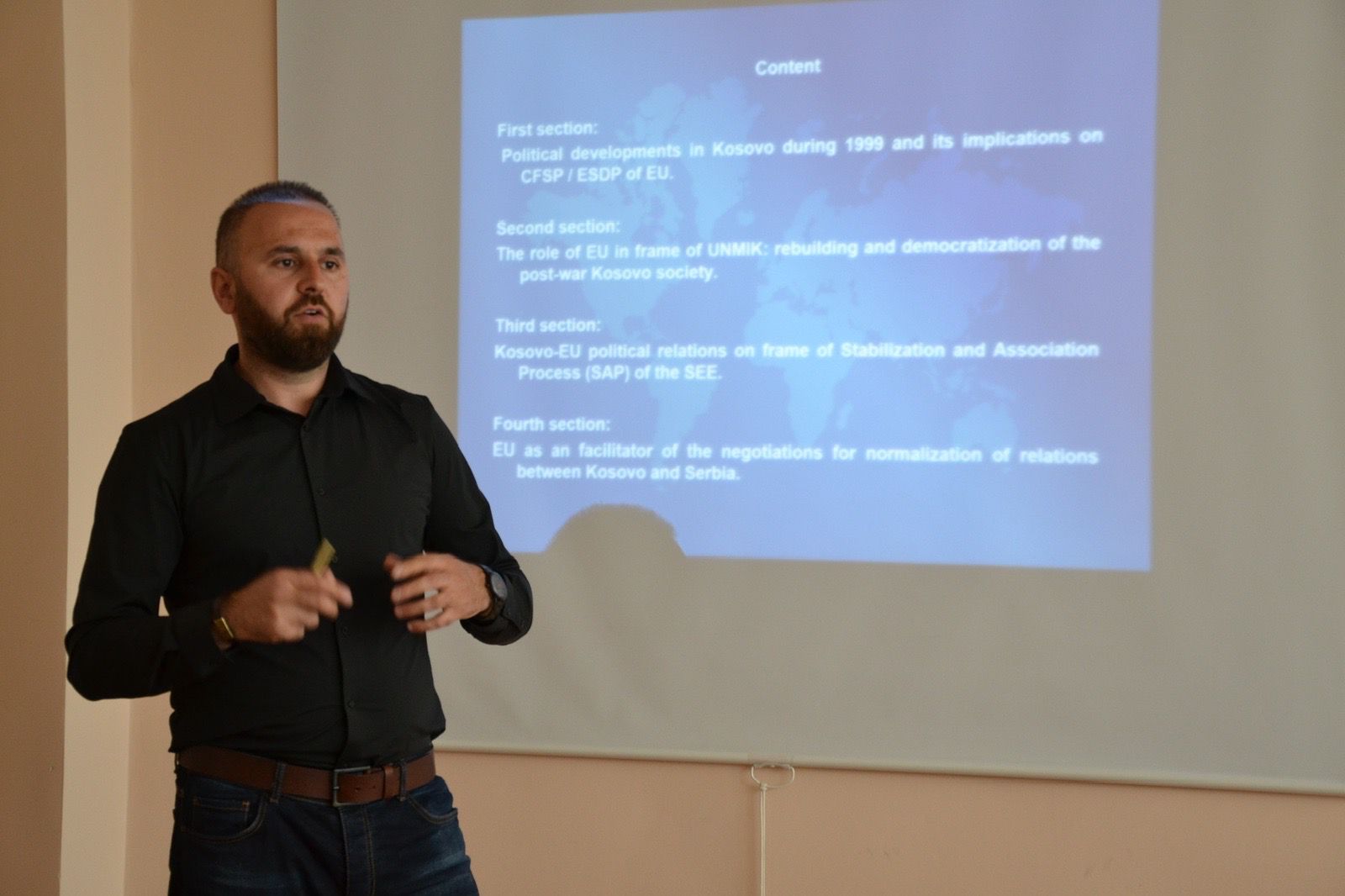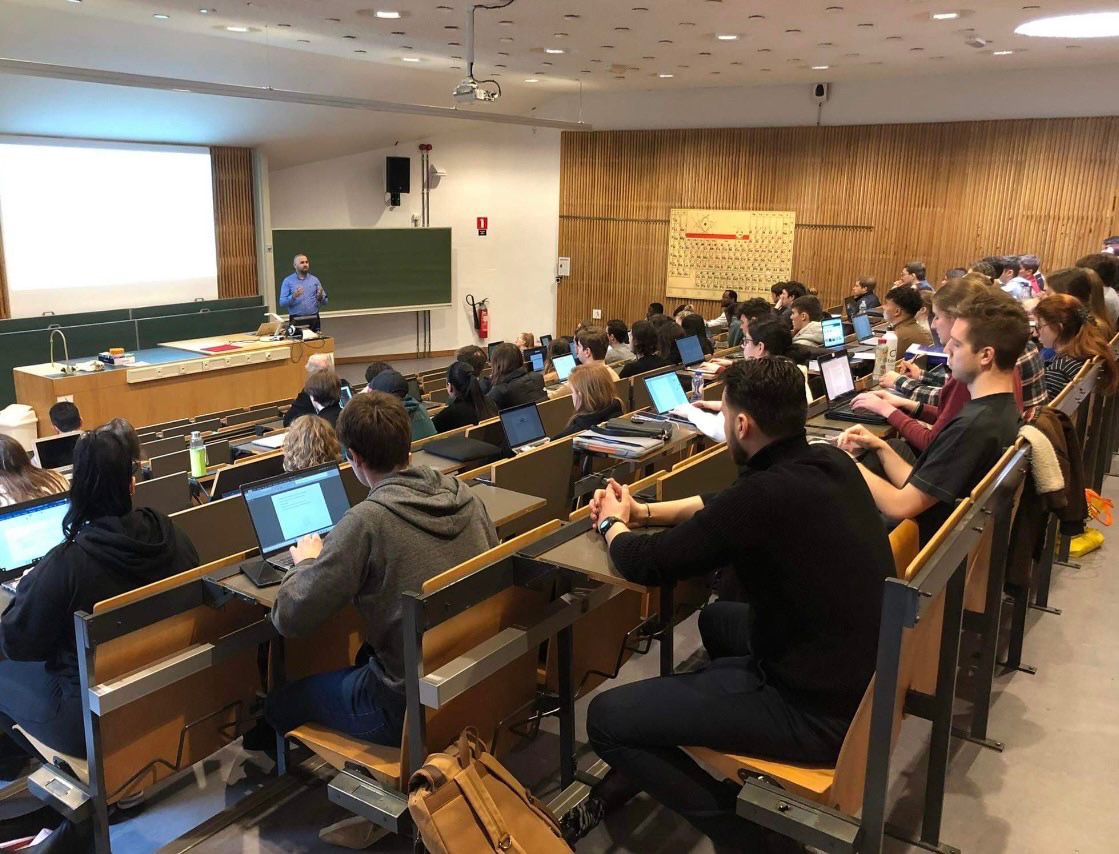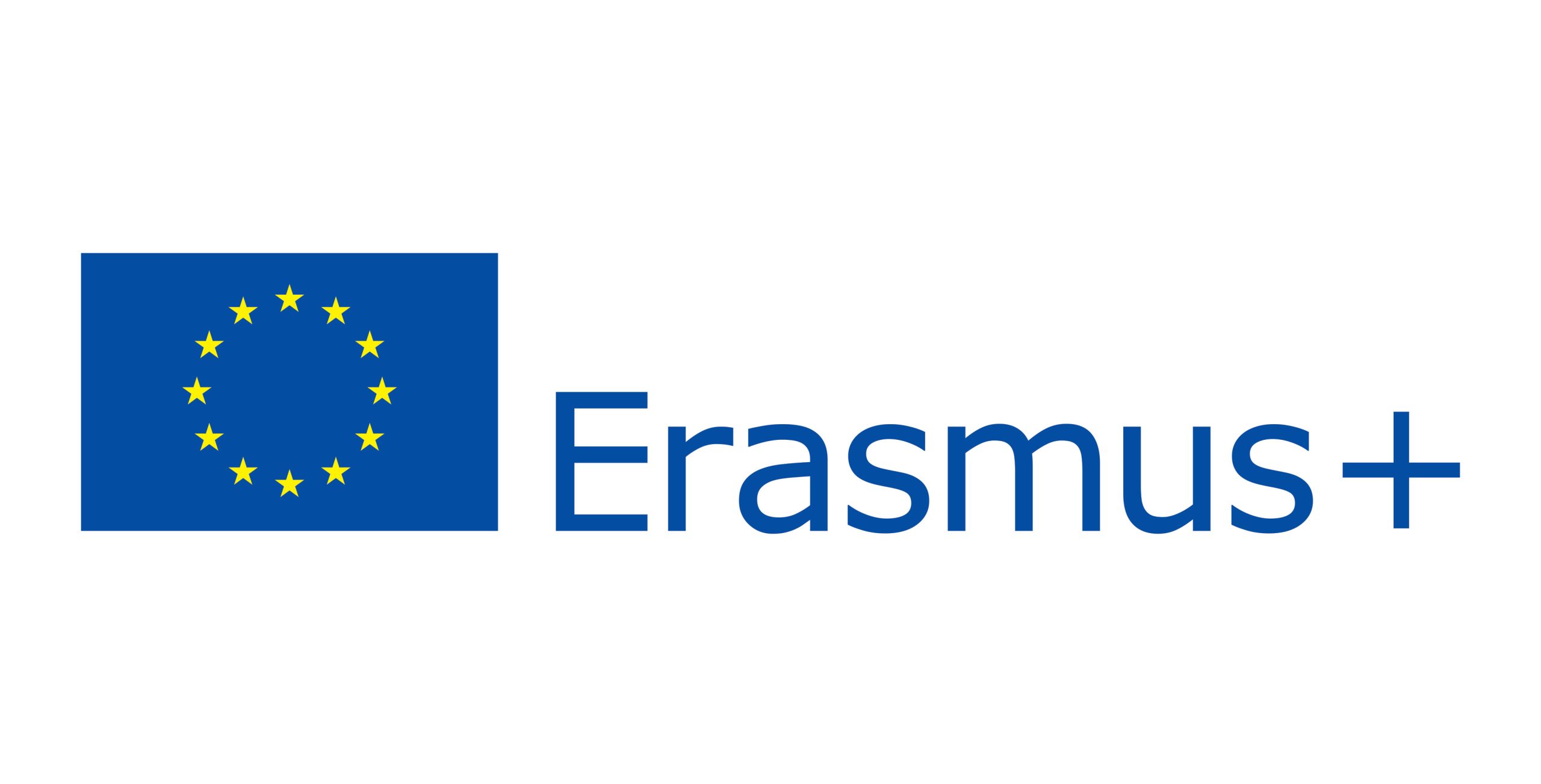Vanesa Veselaj: From Kosovo, to North Macedonia, to Calabria
From a simple email that could get lost in everyday life, Vanesa Veselaj, originally from Kosovo but studying in Tetovo, North Macedonia, at the Faculty of Contemporary Sciences and Technologies, begins a journey that led her destiny to Calabria. Through personal challenges, facing bureaucratic obstacles, and discovering new cultures, her story highlights how unpredictable opportunities can open doors to personal transformation and the courage to step towards new horizons.
It began with a simple email — the kind that usually disappears into the background of everyday life. But for Vanesa Veselaj, at the time living in Tetovo, a town tucked away in the small and often overlooked country of North Macedonia, that email became the beginning of everything.
Opportunities, after all, were scarce where she grew up. In a country smaller than most European cities, where cultures coexisted but rarely intertwined, and dreams of going abroad were often just that — dreams — an Erasmus+ program seemed almost too good to be true. Yet something deep inside her knew she had to try.
“I remember it like it was yesterday,” she said, smiling. “The email announced a chance to study abroad. I immediately went online, reading everything I could about the countries and cities. When I saw Calabria… something clicked. Without thinking twice, I applied.”
She had to wait a year — bureaucracy and university rules demanded it. But the moment she was eligible, she didn’t waste a single second. The dream she had carried since childhood — a dream she couldn’t quite explain, only feel — was finally within reach.
The city that waited for her
Her acceptance letter arrived in the midst of the pandemic, a time when fear and uncertainty had gripped the world. Friends and family hesitated. Was it safe to leave? Was it wise? But she never questioned it.
There wasn’t a pandemic strong enough to stop me from living my dream,” she said simply.
Calabria welcomed her with the kind of beauty that only those hungry for the world can truly see. “Every day was a revelation. New languages, new cultures, different religions. Everything was ‘wow’ for me. Coming from a place where we rarely meet someone different, it was like breathing new air.”
Of course, the pandemic cast a shadow. Quarantines, restrictions, loneliness. “Yes, it made it harder. I couldn’t experience everything as freely as I had imagined. But it didn’t make it any less beautiful.” If anything, it made every stolen moment — every conversation, every walk — even more precious.
The fight to stay
But four months pass quickly when you’re living inside a dream. Soon the clock started ticking. It was almost time to go home.
She wasn’t ready.
“I searched everywhere for a way to stay longer. I made dozens of phone calls, spoke to every professor and administrator I could find. I couldn’t imagine leaving just yet.”
Most answers were the same: no. She would have to return to Tetovo, to finish her studies, to move on. But then… a small miracle.
“A university employee found a way. An internship in another city. Four more months. Without hesitation, I accepted. I would have stayed even if it had been just one extra day.”
And so her story continued — not in the city she first fell in love with, but somewhere new. Somewhere that would surprise her even more deeply.
Meeting the forgotten cousins
The new town was different. Older, quieter. And it carried a secret: it was home to the Arbëreshë. Few outside of southern Italy know their story. The Arbëreshë are descendants of Albanians who fled their homeland five centuries ago, escaping the Ottoman conquest. In these sleepy Italian villages, they clung to their language, their songs, their traditions — stubbornly preserving a piece of Albania that had long since faded elsewhere.
“I had never met Arbëreshë Albanians before,” she said, her voice thick with emotion. “Every conversation filled me with tears and pride.”
They spoke an ancient, melodic Albanian, peppered with words no longer used back home. They carried customs untouched by modern borders. And they welcomed her not as a visitor, but as family. “I remember telling them I was from Kosovo. They would say to me, ‘Our blood is one and the same.'”
For a young woman who had traveled so far, searching for something she couldn’t quite name, it was like finding a mirror in a distant land.
“I saw myself in them. In their hospitality, in their pride, in their stubborn, beautiful resilience.”
Coming home — but not really
Eventually, even the second chapter had to end. After nearly ten months, the rules left no more loopholes. She returned to North Macedonia, diploma still unfinished, heart forever altered.
“Coming back was one of the hardest things I’ve ever done,” she admitted. “I love my country. But it hurt to return to a place that couldn’t offer me the life I had glimpsed.”
Physically, she was home. Spiritually, she was somewhere else entirely. She spent months searching, plotting, dreaming — refusing to believe that those ten months were all she would get.
“I had tasted a different kind of life. A life where people moved freely between cultures, where possibilities felt endless. I wasn’t ready to let that go.” Eventually, through a mix of persistence, luck, and sheer will, she found her way back to Italy — this time not just as a visitor, but to stay longer.
A dream that keeps growing
Today, Vanesa’s journey continues. What started as a four-month Erasmus exchange became a permanent transformation — a new life built from hope, courage, and relentless belief in something better.
Her story is not just about traveling across countries. It’s about crossing invisible lines — between fear and bravery, between smallness and possibility, between who we are and who we might become if only we dare.
The email that once seemed so ordinary is now part of the story she tells herself: That sometimes, when the world feels closed and heavy, all it takes is one small open door — and the courage to walk through it.
Since June 2021, over 2,200 students, teachers, and professors from North Macedonia have taken part in Erasmus+, showing strong interest in education, mobility, and exchange. Most were young people aged 15–29, with 57.5% being women and girls. The programme supported 1,046 students to study abroad, 511 for practical training, 359 professors to lecture, and 290 teachers and professors to join EU training programs. Top destinations included Turkey, Croatia, Slovenia, and Bulgaria. The source of all these statistics is the National Agency for European Educational Programmes and Mobility, North Macedonia.

